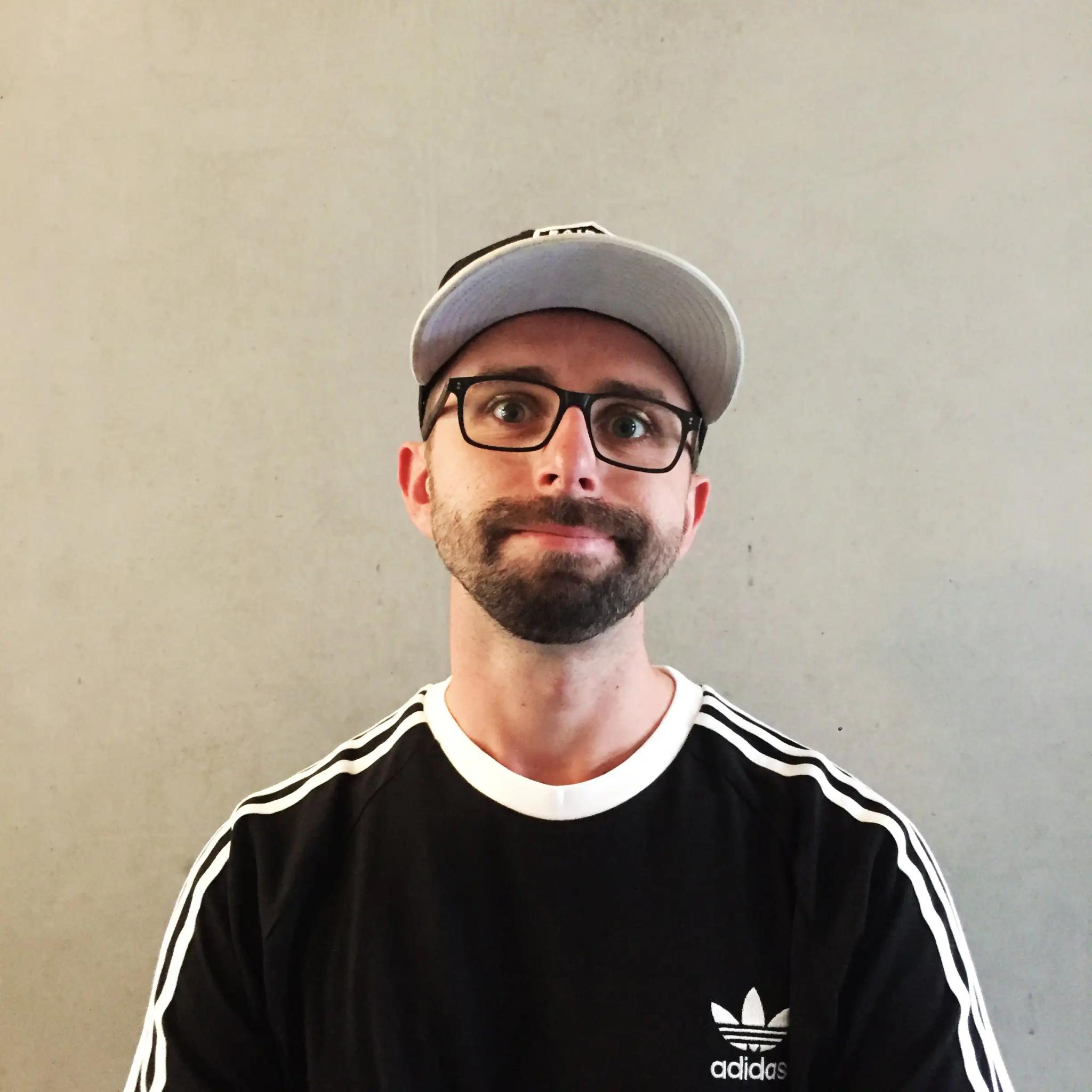Testimonials
Axel' experience report #5
19th August 2018

JavaScript, oh JavaScript!
My new love - how could I live without you?
My name is Axel, I am 32 years old and I am on my way to becoming a digital nomad. I decided to join a bootcamp at neue fische after some time of preparation and self-study. How it came about, what experiences I've had so far in the field of web development and what lessons I've learned from them, I'll share with you here step by step.
I'm reporting to you today about the third and fourth week of our web development bootcamp. Our topic was JavaScript and once again I realized: Programming is fun! And right at the beginning I'll give you the credo of this blog for the web developer life:
"Any application that can be written in JavaScript, will eventually be written in JavaScript." - Jeff Atwood
Mastering JavaScript means front-end and back-end web programming....
JavaScript is one of many programming languages that can also be used as a backend programming language on the modern web. JavaScript on the web backend has a great many advantages. The biggest one: if I want to move to backend programming as a frontend developer, I can use this programming language there as well, while I would have to learn the syntax of other backend programming languages from scratch first.
...because NodeJS from Google can interpret JavaScript
Initially, JavaScript with NodeJS in the backend was just hype, something for the hipsters and hackers. But NodeJS has established itself and made a strong curve upwards in terms of user numbers and projects. By now, even big players like eBay, Uber, Netflix, Trello, PayPal, LinkedIn, Medium, Group and many more use JavaScript as a backend technology. JavaScript is not a programming language in the true sense, but a scripting language. So the JavaScript code we write does not need to be compiled so that various "machines" can read it. Rather, it is that the JavaScript code is interpreted. In the frontend we have the browser for that and in the backend we have NodeJS.
NodeJS consists of the V8 engine developed by Google. This is also present in the Google Chrome browser to interpret JavaScript client-side. This V8 engine has been extracted from the browser and "rewritten" so that we can use it with NodeJS as a JavaScript interpreter in the backend.
Web developers need to master JavaScript
JavaScript is very versatile: it can be used for native and mobile apps, and it can be used for Android, Windows, Linux, iOS, and macOS. Even decentralized technologies such as blockchain or Internet of Things (IOT) or robotics projects can be implemented with JavaScript. In these more specialized cases, additional engines and technologies come into play. We talked about this at camp with our coach Jerry, but I'll leave out the details here because they would be beyond the scope.
In the new fish bootcamp, we learn everything using state-of-the-art JavaScript. We write code starting with ES6 syntax, also called ES2015 (ECMAScript 2015). In 2015, JavaScript got a major update. This allows developers to write more elegant and simpler codes. My conclusion: every company should implement their projects with modern JavaScript code from ES6. The advantages are impressive. However, there are still many older projects written in ES5, which web developers of course need to be able to interpret and (re)write. Therefore, from my point of view, it is also important to deal with this syntax. Besides, 95% of all resources and tutorials on the World Wide Web are still written in ES5.
The slightly different curriculum approach at neue fische
Actually all resources to start JavaScript start with the same basics: variables, data types, functions, arrays, loops, objects, methods, classes and many more. This makes sense in my eyes, because if you don't understand the basic functions of a programming language, it's very difficult to get into advanced topics.
At neue fische, we started with a slightly different approach. We dove right into DOM manipulation (DOM stands for Document Object Model). The "Document" (the HTML document) represents each tag, class, and ID as an "Object" that we can manipulate using JavaScript.
This allows us to modify our HTML code on the client side and, for example, design animations, change colors, show and hide objects, and much more.
I was confused at first and wondered how graduates without basic knowledge of JavaScript basics are supposed to understand and use DOM manipulation. Now it's clear to me: the new fische Web Development Bootcamp teaches the basics directly using DOM manipulation. This starts with variables and goes all the way to functions. So we learn the individual JavaScript basics directly in applied practice, supported by smaller exercises for the respective basics.
The neue fische bootcamp formula: work practically and learn the theory at the same time
We have real use cases on screen to better understand each topic. From my point of view, both teaching methods have advantages and disadvantages. If you learn JavaScript basics directly based on DOM manipulation, you have a higher hurdle to overcome in my opinion. So, in part, you just have to accept that something works the way it does. On the other hand, I think that with the new fische method you can better understand and overview larger contexts after it has "clicked" once.
Frustration and joy sit side by side
Currently, I observe two groups among the other course participants. Some are still waiting for their "click" and doubt. The others are absorbed in JavaScript and have really gotten into coding. I have already written about the topic of mindset. You must not get demotivated at all. On the contrary! You should draw motivation from such a situation: repeat topics, repeat exercises, repeat course content. If you keep at it, you will be rewarded in the end. I've had experiences like this many times and know how best to deal with it. It's not always easy - but it's doable.
In the bootcamp, we can get direct support from our coach Jerry or from our fellow students. After bootcamp, you don't have that luxury anymore and you have to be aware of that. I'm definitely grateful for the help and I'm taking my chance now. That alone will get me to a whole different level as a web developer within four bootcamp weeks.
Next week we start with Advanced JavaScript, OOP (Object Oriented Programming), more tooling (Webpack and Babel), server side with NodeJS, APIs and the JavaScript front end framework React with Redux.
I'm looking forward and will report back.
See you soon
Your Axel

What are you waiting for?
Apply today! Our Student Admissions team is happy to speak with you and answer any unanswered questions.